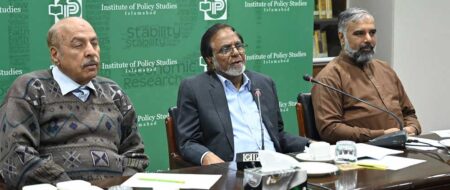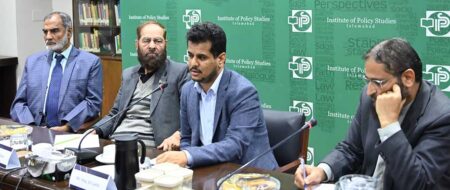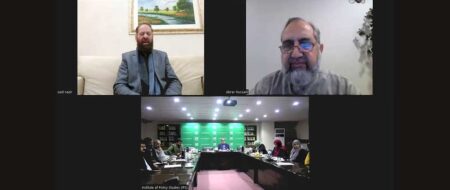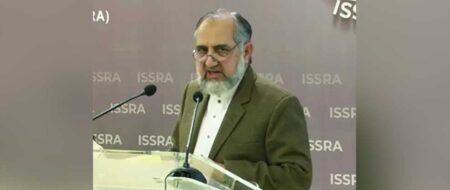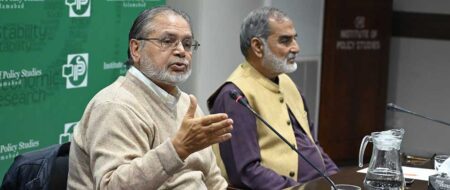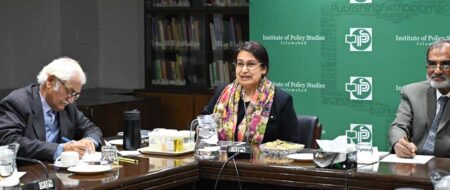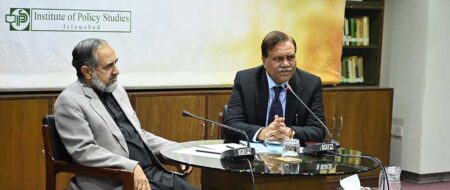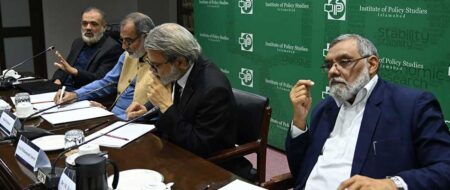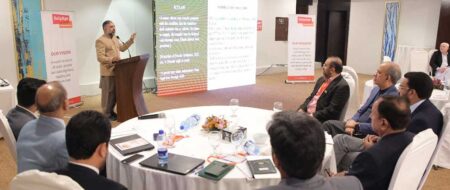Pakistan’s Nuclear Program: Context and Prospects
India has become the first self-declared terrorist state of the world with its present defense minister publicly outlining the strategy of waging proxy wars in Pakistan as a state policy; a matter that Pakistan should consider taking up at the UN’s Security Council.
India has become world’s first self-declared terrorist state: Amb (r) Masood Khan
India has become the first self-declared terrorist state of the world with its present defense minister publicly outlining the strategy of waging proxy wars in Pakistan as a state policy; a matter that Pakistan should consider taking up at the UN’s Security Council.
This was opined by Pakistan’s former representative in the UN, Ambassador (r) Masood Khan while addressing a seminar ‘Pakistan’s Nuclear Program: Context and Prospects’, held at the Institute of Policy Studies, Islamabad, on June 3, 2015.
A number of security experts, officials, researchers and media personnel participated in the session, which was also addressed by Director General-IPS Khalid Rahman and senior IPS associate and security analyst Air Commodore (r) Khalid Iqbal.
Khan said that the recent statements by India’s official representative were yet another testament of the country’s provocative ideology and approach since the inception of Pakistan that also dragged the latter into nuclear race to maintain its defense deterrence. Pakistan, he added, was forced to start developing its own nuclear capabilities after India conducted its first nuclear tests in 1974; then again in 1998 when India disturbed the region’s power equation again by conducting its second series of atomic tests.
Speaking of India’s proxy wars, the speaker divulged that the country had constantly used Afghanistan’s land to destabilize Pakistan. He however was assertive that Pakistan can never look at Afghanistan as an adversary, believing that the national interests of both brotherly countries did not lay on divergent plains.
The speaker was of the opinion that Pakistan did the right thing by not signing NPT (Non-Proliferation Treaty). He said that even the 188 NPT member countries were now regretting signing it as the treaty was only protecting Israel’s interests which was not even a signatory to this international agreement.
Khalid Iqbal, too, reflected strongly over India’s hostile attitude, exclusively presenting the example of its ‘Cold Start Doctrine’ among various other dangerous doctrinal concepts that the country has coined and employed to coerce its neighbors, especially Pakistan.
Apart from its huge nuclear, space and cyber warfare programs, India was also the world’s biggest importer of conventional weapons during 2008-2013 according to SIPRI’s (Stockholm International Peace Research Institute) fact sheet, he informed.
He earlier presented the background of Pakistan’s nuclear program and approach, concluding that the country has always acted as a responsible nation whereas India has been following an adverse and mala fide approach, even declaring openly that it would wage proxy war in Pakistan as an instrument of its state’s policy.
He was however confident of Pakistan’s defense and deterrence capabilities, stating that Pakistan’s nuclear program was completely safe and secure, and can answer any threats faced.
The speakers were skeptical about the proposal of including India in the Nuclear Suppliers Group (NSG) and stressed that any such move would only lead to further complicating the global nuclear regime.
The panelists however were unanimous that Pakistan was a safe, secure and responsible nuclear state, a fact that was even endorsed by the US Secretary of State, John Kerry in his recent meeting with Prime Minister Nawaz Sharif, where he specially praised the nuclear safety controls employed by Pakistan through its Strategic Planning Division (SPD).


